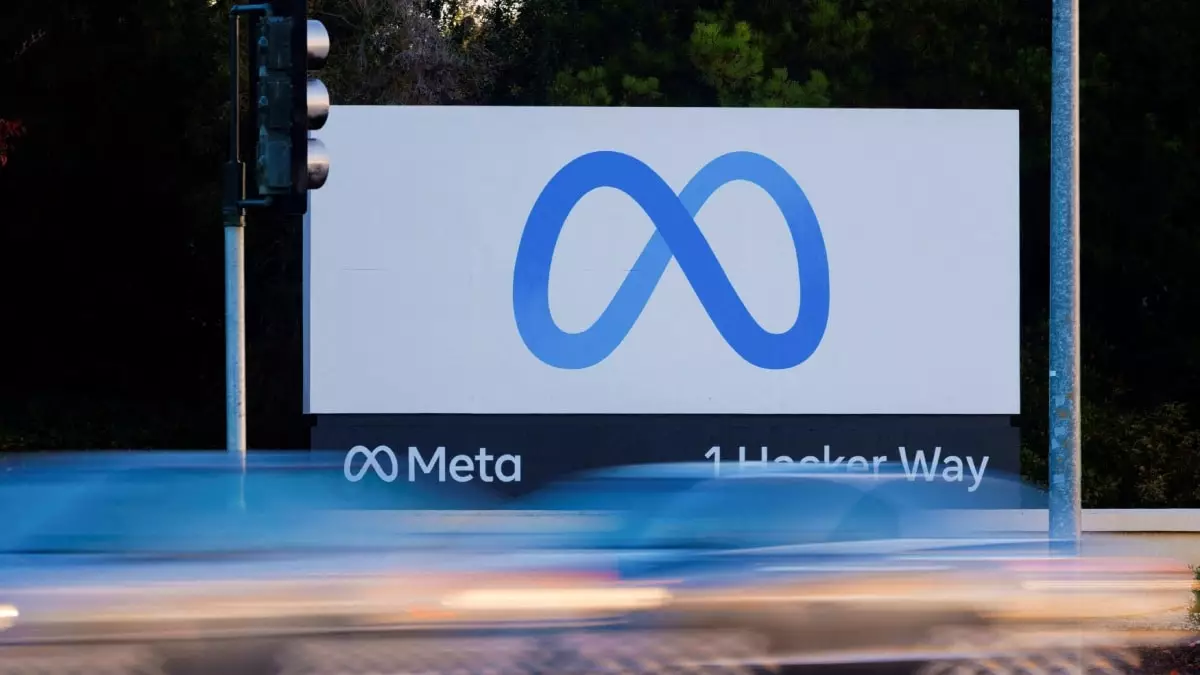The European Union has taken a significant step in regulating big tech by imposing a staggering €798 million (approximately $841 million or Rs. 7,100 crore) fine on Meta Platforms Inc. This is the company’s first penalty related to antitrust violations within the EU, primarily stemming from allegations that the technology giant unfairly tied its Facebook Marketplace service to its flagship social media platform, Facebook. This ruling comes as part of a broader effort by European regulators to ensure fair competition in the rapidly evolving digital market.
According to Margrethe Vestager, the EU’s antitrust chief, Meta’s practice of integrating Facebook Marketplace directly with its widely used social network placed unnecessary burdens on competing classified ad services, thereby skewing the market in favor of its own offerings. The European Commission has mandated that Meta must cease these practices, signaling a decisive action against monopolistic tendencies in the digital landscape.
This fine not only marks a critical moment in the ongoing regulatory scrutiny of Meta but also adds to a string of challenges the company is currently facing. In the U.S., the Federal Trade Commission has also progressed with its own antitrust lawsuit against Meta, making it clear that scrutiny of the company is intensifying on both sides of the Atlantic. These collective pressures indicate a turbulent period ahead for Meta, as it grapples with regulatory compliance across multiple jurisdictions.
Meta’s current predicament is not an isolated incident but rather part of a larger trend. Over the past decade, Vestager has emerged as a formidable figure in the tech regulation sphere, known for her relentless pursuit of antitrust violations, particularly in the case of tech giants like Google, which has faced over €8 billion in fines. The EU’s approach reflects a growing consensus on the need for stricter regulations to rein in the vast powers of these major tech firms and foster a fairer competitive environment.
Interestingly, while Meta faces this significant financial penalty, other tech giants have managed to evade fines. For example, Amazon successfully negotiated its way out of fines by promising to change its data usage practices. This discrepancy raises questions about standards and consistency in enforcement actions across the board, with critics calling for more stringent measures to ensure accountability among all players in the tech industry.
Meta’s Response and Future Outlook
In response to the ruling, Meta has indicated its intention to appeal, arguing that the decision “ignores the realities of the thriving European market” and asserts that it unfairly targets large companies while overlooking the competitive dynamics at play. The appeal process could be protracted, spanning several years, during which Meta will likely continue to navigate the complexities of European regulations and market performance.
Despite these challenges, Meta managed to report a 19% increase in sales to $40.6 billion in the most recent fiscal quarter, indicating that the company’s core digital advertising business remains robust, despite regulatory hurdles. However, the ongoing investments in new technologies like artificial intelligence and virtual reality remain a major financial burden, which could influence its ability to fend off these regulatory challenges effectively.
Broader Implications for the Tech Landscape
Meta’s fine has broader implications for the tech industry at large. As EU regulators ramp up their scrutiny under the recently enacted Digital Markets Act, other tech giants, including Google and Apple, may find themselves similarly challenged. The act introduces more stringent rules for tech companies classified as “gatekeepers,” and came in response to the persistent calls for reform in how these companies operate.
The ramifications of such regulatory actions extend beyond just fines; they include potential changes in business practices and market structures. Advocates argue that these measures could lead to greater innovation and consumer choice, while opponents warn of overreach and unintended consequences that could stifle growth.
Meta Platforms Inc.’s recent fine signals a turning point in how antitrust regulations are shaping the future of big tech in Europe. As the company prepares to appeal the decision and navigate ongoing scrutiny, the outcomes could set significant precedents that affect not only Meta but the broader technology ecosystem as well. The balance between fostering innovation and ensuring fair competition will remain a pivotal issue for regulators and tech companies alike in the coming years.

